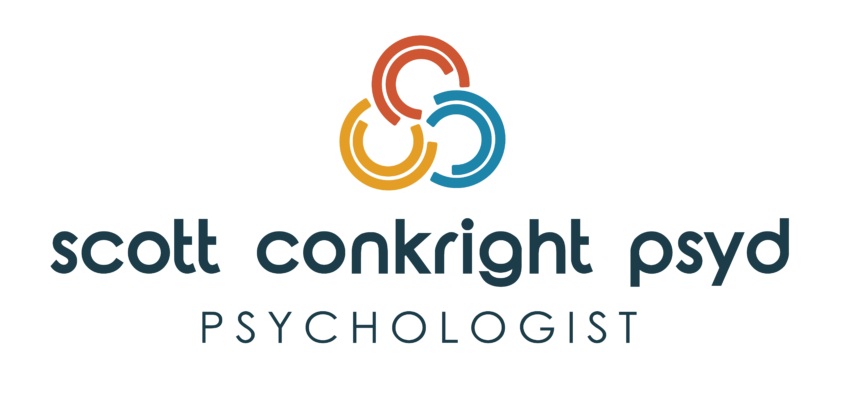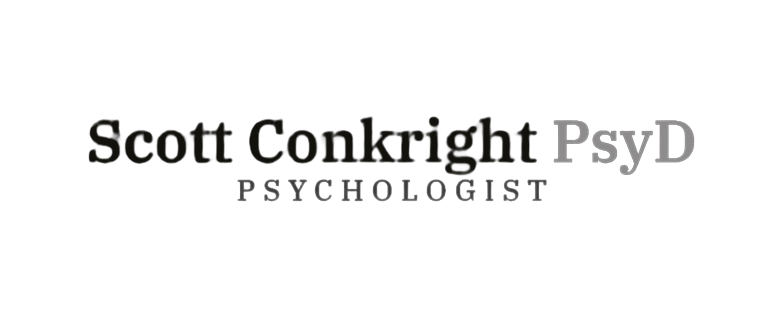A Healthy Addiction: Divine Discontentment

In our perpetual quest for happiness, we often navigate through many experiences, ideologies, and self-help doctrines, seeking a recipe that promises fleeting joy and meaningful happiness. Yet, what if the key to such profound contentment lies not in achieving a state of blissful stasis but in embracing a form of healthy addiction? Exploring this concept through the lens of divine discontentment and its connection to affect theory offers a fresh perspective on how we might cultivate a life of depth, fulfillment, and continuous growth.
In Greek mythology, where gods and heroes walk side by side, the concept of divine discontentment finds a compelling embodiment in the figure of Theseus. Though the term itself may not be woven into the ancient myths, the essence of this profound unrest and yearning for more is vividly illustrated through Theseus’s life and adventures. Known for his intelligence, bravery, and a series of daring endeavors—most notably defeating the Minotaur and navigating the Labyrinth—Theseus’s journey can be interpreted as one fueled by a deep-seated intellectual, spiritual, and emotional restlessness. This insatiable hunger for new experiences, challenges, and personal growth drives him to confront physical adversaries and the complexities of wisdom, courage, and introspection.
Theseus’s story, when viewed through the prism of divine discontentment, reveals a hero perpetually pursuing something greater than himself. This divine unrest, perhaps seen by the gods as a gift and a trial, bestows him an unending thirst for exploration, learning, and self-betterment. In this regard, Theseus is an archetypal “renaissance man,” embodying the zeal of a peripatetic enthusiast eager to delve into the depths of thought and action, always seeking novelty and understanding.
This divine discontentment propels him through his legendary feats and profoundly influences his legacy as a hero who never settles for superficial victories or complacent repose. Theseus’s life narrative becomes a powerful allegory for the pursuit of excellence and the transformative potential of embracing the rigors and rewards of one’s journey. Through the lens of his story, we celebrate the richness of life and the inherent capability within us to transcend our limitations, propelled by continuous striving, curiosity, and the embrace of divine discontentment.
The story of Theseus, with his divine discontentment driving him toward continuous growth and exploration, mirrors the modern concept of a healthy addiction, particularly in the realm of creativity and learning. Drawing from the hypothesis of creativity as an addiction to thinking, we recognize a parallel in the notion that the capacity to learn—and to continue learning—is cultivated, not inherent. This perspective challenges the traditional view that intellectual capacities are fixed, underscoring instead that acquiring knowledge and maintaining the ability to learn demand relentless engagement and curiosity. Like Theseus’s insatiable quest for challenges and self-improvement, a healthy addiction to thinking requires us to embrace a perpetual journey of exploration, where every discovery fuels the next step, and satisfaction comes not from complacency but from the relentless pursuit of understanding. This transition from myth to modernity suggests that the essence of divine discontentment and the drive for continuous learning and creativity are timeless and central to human progress and fulfillment.
Reframing Healthy Addiction: The Keystone of Profound Contentment
Delving into the notion of healthy addiction reframes our understanding of addiction itself, transforming it from a concept laden with negativity into a beacon of life’s profound contentment. A healthy addiction, particularly to learning, exploration, and profoundly personal experience, emerges as beneficial and essential for a life rich in meaning and fulfillment. It signifies an unwavering commitment to delve beyond the superficial, to question the easy answers, and to embrace the complex tapestry of life’s mysteries. Such addiction sustains the vibrant spirit of divine discontentment, ensuring that our quest for insight and personal evolution is boundless and perpetually rejuvenated.
Drawing from the hypothesis of creativity as an addiction to thinking, we recognize that the capacity to learn—and to continue learning—is not inherent but developed through persistent engagement and curiosity. This hypothesis posits that both the acquisition of knowledge and the maintenance of the capability to learn require ongoing practice, challenging the notion that intellectual capacities remain static over time. Post-education, the individual’s learning trajectory hinges on the sustained desire to think critically and engage deeply with one’s inner world. It suggests that true satisfaction in learning stems from an intrinsic “addiction” to cognitive and emotional exploration.
This conceptual framework identifies two distinct personality archetypes that struggle to cultivate such an addiction: the impulsive individual, driven by immediate gratification, and the conformist, restrained by the unchallenged acceptance of societal norms. Both archetypes demonstrate lifestyles characterized by a passive acceptance of experience, devoid of the rich, active engagement with thought and introspection that defines a meaningful existence.
A healthy addiction is the synergistic union of an enriched inner life with the relentless pursuit of intellectual understanding. It is a commitment to diving deep into the complexities of one’s psyche and the world, propelled by a relentless curiosity and an appetite for discovery. This form of addiction recognizes the intrinsic value of both emotional and cognitive exploration, seeking answers to the myriad questions that define our existence.
Such an addiction is not a mere pastime but a fundamental drive toward creativity, offering a unique conduit to navigate life’s challenges and intricacies. In this pursuit, we find the thrill of discovery and the foundational elements of true happiness and contentment. Far from the detrimental impact of conventional addictions, this dual addiction to thinking and experiencing stands as the sole pathway to genuine creative fulfillment, turning the journey of life into an endlessly enriching adventure.
The Perils of Impulsivity
Impulsivity, characterized by hasty actions without forethought or consideration of consequences, carries its unique challenges. Individuals prone to impulsivity often experience a gap between their needs and satisfaction, leading to a cycle of quick gratification that bypasses more profound, meaningful pursuits. This constant search for immediate satisfaction can hinder the development of patience and resilience, which are essential for engaging deeply with complex ideas or long-term goals. The impulsive personality may struggle with maintaining relationships, careers, and personal growth, as the fleeting joys of quick rewards fail to compensate for the lack of sustained fulfillment. This mode of operation can significantly restrict an individual’s ability to engage in the healthy addiction of thinking and exploring one’s inner life, thereby limiting opportunities for creativity and profound understanding.
The Constraints of Conformity
On the other hand, an overly conformist attitude, marked by an unquestioning acceptance of societal norms and a reluctance to challenge the status quo, can be equally limiting. Conformists may find safety in compliance, yet this safety often comes at the expense of personal growth and self-discovery. By adhering strictly to conventional values, individuals may stifle their curiosity and suppress the drive for exploration that fuels creativity and deep understanding. This adherence to the familiar can prevent the development of a rich, complex inner life, as opportunities for questioning, experimenting, and experiencing the world in new ways are foregone. While seemingly risk-free, the comfort found in conformity can lead to a life of unfulfilled potential, where the depths of knowledge and the heights of creativity remain unexplored.
Divine discontentment is a profound and inherently positive restlessness or unease that drives individuals toward continuous growth, learning, and self-exploration. An insatiable curiosity and a relentless pursuit of deeper understanding and connection with the world characterize it. Divine discontentment is not merely dissatisfaction with the status quo but a vital force that propels individuals to seek meaning, engage with complexity, and embrace the unknown. It aligns with the idea of a “healthy addiction” to thinking and engaging deeply with one’s inner life, suggesting a dynamic interplay between the desire for more and the joy in the journey of discovery.
Understanding Affect Theory through Divine Discontentment
Silvan Tompkins’ affect theory provides a framework for understanding the biological and psychological mechanisms that underpin our emotions and personality. Affect theory posits that we are born with innate affects—automatic responses to stimuli that shape our engagement with the world. Among these, the positive affects of interest-excitement and enjoyment-joy play crucial roles in our capacity for engagement and contentment. Interest-excitement drives us to explore, learn, and embrace novelty, while enjoyment-joy allows us to find contentment and pleasure in our connections and experiences.
Divine discontentment can be seen as a manifestation of the affect of interest-excitement, enriched by a deeper, more reflective engagement with one’s inner life and the external world. It embodies the motivational aspect of affect theory, illustrating how our innate drives can lead us beyond immediate pleasure or escape toward a more profound and sustained engagement with life. Divine discontentment encourages us to question, seek, and grow, pushing against the boundaries of our understanding and experience.
This concept highlights a crucial aspect of affect theory: affects are not just reactive but are also foundational to our capacity for curiosity, learning, and adaptation. The discomfort or restlessness associated with divine discontentment can be a powerful trigger for Interest-Excitement, leading us to discoveries and deeper insights. In turn, this process can generate Enjoyment and Joy, as we enjoy pursuing understanding and expanding our horizons.
In essence, divine discontentment bridges the two positive affects, illustrating how the pursuit of growth and understanding (Interest-Excitement) can coexist and enhance our capacity for joy and contentment (Enjoyment-Joy). It shows that our affective responses to the world are not merely about seeking pleasure or avoiding pain but about engaging deeply with the complexities of life and our desire for meaning. Through this lens, affect theory offers a nuanced understanding of how our innate emotional responses can lead to a rich and fulfilling engagement with the world.
The Modern “Renaissance Individual”
Divine discontentment embodies a harmonious blend of intellectual curiosity, spiritual exploration, emotional engagement, and a profound appreciation for the rigorous journey toward self-discovery. This state of being encourages an active pursuit of knowledge, understanding, and experience, continuously driving individuals to seek new horizons, ideas, and perspectives. It is marked by a relentless quest for growth and a deep-seated desire to engage fully with the complexities of life and the self.
A person imbued with divine discontentment resembles a modern “renaissance individual,” embodying a peripatetic zest for an expansive and introspective life. They are enthusiasts for novelty, not merely for its own sake, but to enrich their understanding of the world and their place within it. Their journey is characterized by an openness to change and transformation, grounded in a deep appreciation for the nuanced interplay between knowledge, spirituality, and emotion.
Recontextualizing Affect Theory Through Divine Discontentment
Within Silvan Tompkins’ affect theory, divine discontentment can be viewed as an intricate dance between interest-excitement and enjoyment-joy. It leverages the energizing power of interest-excitement, the drive that propels us towards exploration, discovery, and embracing the new. Concurrently, it harnesses the warmth of enjoyment, finding pleasure and fulfillment in the depths of exploration and the richness of spiritual and emotional growth.
This dynamic equilibrium between seeking and savoring, between the vigor of discovery and the serenity of understanding, underscores a sophisticated aspect of affect theory. It reveals that our emotional lives are not merely reactive but are deeply entwined with our intellectual and spiritual endeavors. Divine discontentment illustrates how pursuing new knowledge and experiences, fueled by boundless curiosity, can merge with an inner journey of reflection and connection, culminating in a profoundly satisfying engagement with life’s mysteries.
In this light, divine discontentment is not just a state of restlessness or a yearning for more; it is a holistic approach to living that celebrates the complexity of the human experience. It acknowledges that true fulfillment comes from integrating our intellectual, spiritual, and emotional selves embarking on a challenging and profoundly rewarding journey. Through the lens of divine discontentment, affect theory becomes a guide to understanding our emotional responses and navigating the rich landscape of human curiosity, growth, and fulfillment.






